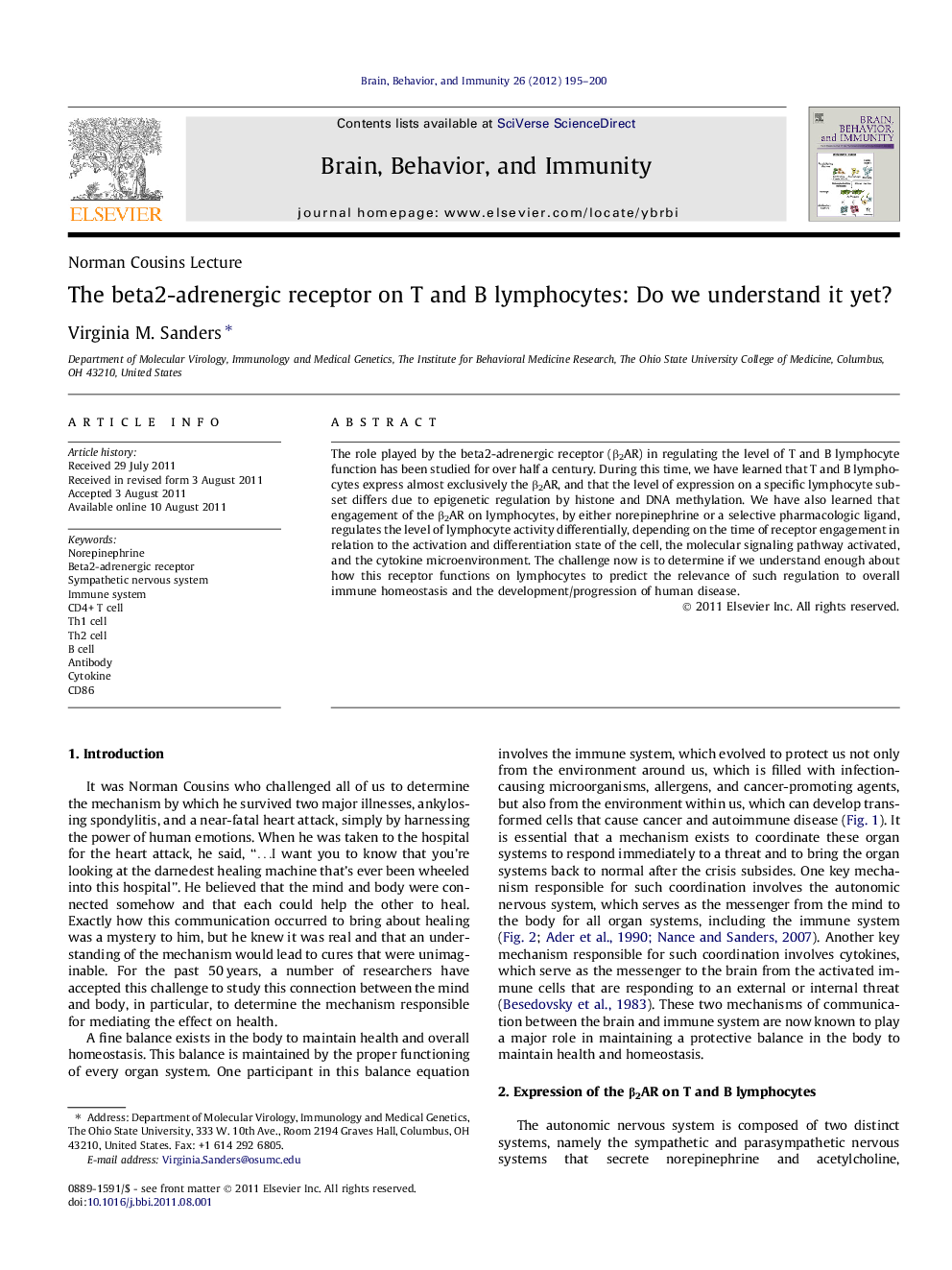| Article ID | Journal | Published Year | Pages | File Type |
|---|---|---|---|---|
| 922239 | Brain, Behavior, and Immunity | 2012 | 6 Pages |
The role played by the beta2-adrenergic receptor (β2AR) in regulating the level of T and B lymphocyte function has been studied for over half a century. During this time, we have learned that T and B lymphocytes express almost exclusively the β2AR, and that the level of expression on a specific lymphocyte subset differs due to epigenetic regulation by histone and DNA methylation. We have also learned that engagement of the β2AR on lymphocytes, by either norepinephrine or a selective pharmacologic ligand, regulates the level of lymphocyte activity differentially, depending on the time of receptor engagement in relation to the activation and differentiation state of the cell, the molecular signaling pathway activated, and the cytokine microenvironment. The challenge now is to determine if we understand enough about how this receptor functions on lymphocytes to predict the relevance of such regulation to overall immune homeostasis and the development/progression of human disease.
Highlight► Various mechanisms are responsible for the regulation of T and B lymphocyte activity and function following beta2-adrenergic receptor engagement.
